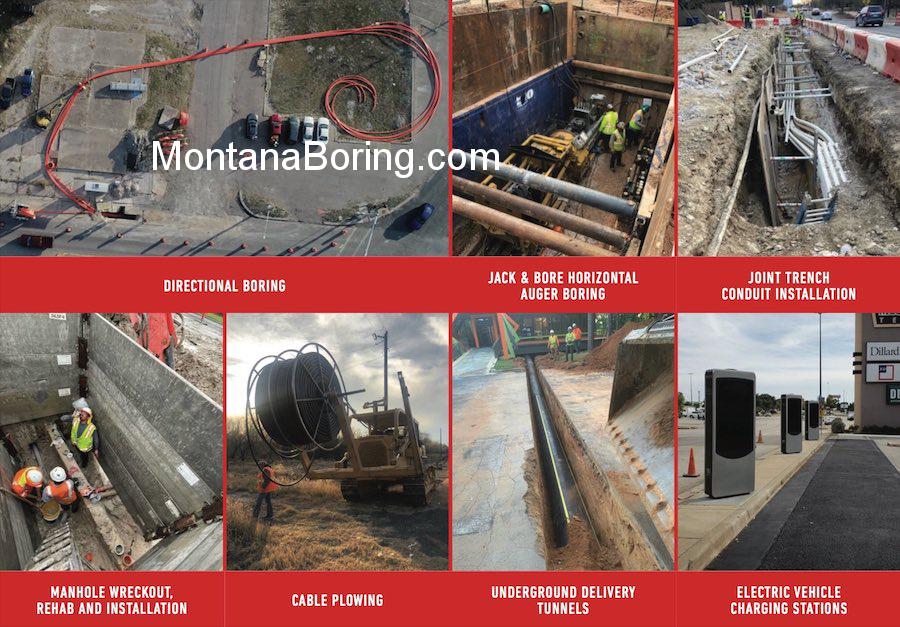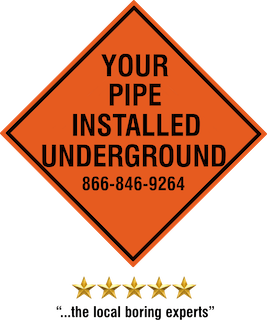Conduit Construction
Montana Boring - Conduit Construction Contractors
Conduit construction plays a critical role in Horizontal Directional Drilling (HDD), directional boring, and other trenchless methods for installing underground infrastructure. Here’s an overview of its applications across different utility installations:
Montana Boring - Conduit Construction Companies
1. Horizontal Directional Drilling (HDD) and Directional Boring
- Purpose: Install conduits underground without excavating large trenches, typically for water, gas, electrical, or fiber optics.
- Process:
- A pilot bore is drilled along a pre-determined path.
- The hole is enlarged using a reamer.
- Conduit (e.g., HDPE, PVC) is pulled through the hole as the drill string retracts.
- Advantages:
- Minimizes surface disruption.
- Allows installation under obstacles like roads, rivers, and buildings.
2. Trenchless Technology
- Conduit Construction Application:
- Utilized for laying underground utility pipelines and cables.
- Common for urban settings where excavation is impractical.
- Uses methods like HDD, pipe bursting, and microtunneling to install or replace conduits.
- Key Features:
- Reduced environmental impact.
- Enhanced durability and protection for utilities.
3. Electrical and Fiber Optic Installations
- Conduit Material:
- Electrical: Typically rigid PVC, HDPE, or metal conduits for cable protection.
- Fiber Optic: Innerduct or flexible HDPE conduits protect sensitive fiber optic cables.
- Benefits:
- Protects against physical damage, moisture, and environmental wear.
- Simplifies future upgrades and maintenance.
4. Duct Bank Installation
- Definition: A series of conduits grouped together, encased in concrete, used for high-capacity electrical and telecommunication installations.
- Process:
- HDD or trenchless methods can install duct banks without traditional excavation.
- Multiple conduits are laid to support redundancy and future expansion.
- Application:
- Power distribution for industrial, commercial, or residential areas.
5. Joint Trench Construction
- Definition: Combines multiple utility lines (electric, gas, telecom, water) into a single trench or bore path.
- Role of Conduits:
- Segregates utilities within the trench for safety and ease of access.
- Conduits are pre-bundled or installed sequentially in one operation.
- Advantages:
- Cost savings due to shared excavation.
- Efficient use of underground space.
Montana Boring - Conduit Construction Near Me
Why Conduit Construction is Essential
- Protection: Shields utilities from environmental and mechanical damage.
- Efficiency: Streamlines installation and future maintenance.
- Regulations: Conduit use often complies with local utility codes for safety and reliability.
- Scalability: Enables easy addition of new utilities without additional disruption.
By integrating conduit construction with modern trenchless methods, utility companies and contractors achieve cost-effective, sustainable, and durable underground infrastructure solutions.


